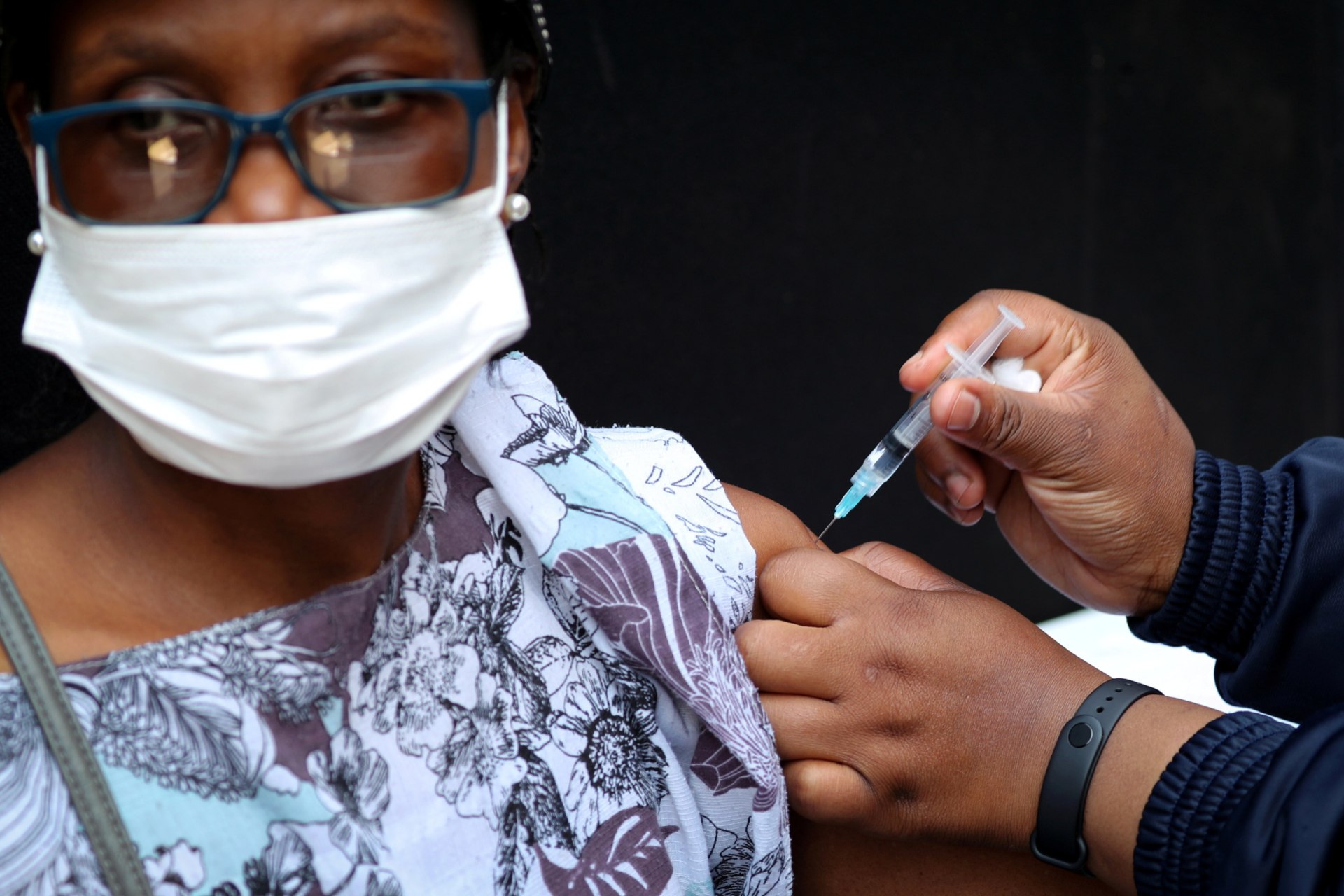New COVID-19 Variant Detected in South Africa
The significance of the C.1.2. variant of COVID-19, first discovered in South Africa in May, remains to be seen.

By experts and staff
- Published
By
- John CampbellRalph Bunche Senior Fellow for Africa Policy Studies
Advocates for increased international assistance to Africa for vaccination against COVID-19 argue that so long as the disease is spreading in one part of the world, variants to the disease can evolve and threaten everybody else. Rates of vaccination against COVID-19 are low in Africa: less than 2 percent of the continent’s population of 1.3 billion people are fully vaccinated. Public health statistical infrastructure is weak on the continent. For example, Kenya’s health principal secretary testified in parliament that statistics of COVID-19 deaths are incomplete because, among other factors, of a shortage of pathologists. The most accurate health statistics appear to be in South Africa. There, over 23 percent of the population has received at least one dose of either the Johnson & Johnson or Pfizer vaccine.
The South African Department of Health has alerted the World Health Organization (WHO) to the emergence of a new variant, C.1.2. It was first detected in May and is now circulating in most of the country’s provinces and at least seven other countries, including the United Kingdom, Switzerland, New Zealand, and China. For now, the WHO says that the prevalence of the variant is low, that it is monitoring it, and that there is no basis for panic. That said, most questions about it, such as whether it is more lethal than Delta or if current vaccines work against it, cannot yet be answered.
Variants of COVID-19 are common: the WHO is tracking at least nineteen different variants, with C.1.2. a possible addition in the near future. Many variants are fragile and die out, and current vaccines appear to provide protection against many or most of them. The WHO stricture against panic over C.1.2. is therefore well placed. Nevertheless, the South African notice to the WHO is a timely reminder of the iniquitousness of COVID-19 variants and the vulnerability to the rest of the world posed by low vaccination rates.
